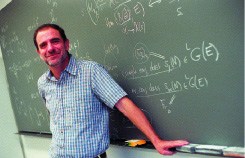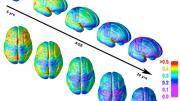Propelled by the cataclysm of World War IIand a half-dozen years of prior study of the undergraduate curriculuma faculty committee chaired by Paul H. Buck, then dean of the Faculty of Arts and Sciences, produced General Education in a Free Society. That 1945 report, based on the principle of a shared body of knowledge, reshaped the College course of study for a generation.
In 1974, after a decade of political and social ferment, Henry Rosovsky, early in his FAS deanship, challenged the faculty to rethink the curriculum again (www.fas.harvard.edu/~secfas/1974Undergraduate.html). Knowledge had expanded, the faculty had grown and become more specialized, but unifying "general education" had deterioratedraising the specter, Rosovsky suggested, of a bachelor's degree reduced in significance to a "certificate of attendance." By 1978, the faculty had responded with the new Core curriculum (www.courses.fas.harvard.edu/~core/), and had begun a four-year process of phasing in courses organized by "approaches to knowledge."
 |
| Benedict H. Gross, himself an engaged teacher, will now oversee the faculty's wholesale review of the undergraduate curriculum. |
| Photograph by the Harvard News Office |
In the new century, the time has come round again to consider the College course of study. President Lawrence H. Summers has spoken often of curricular overhaul. Now, the FAS dean whom he appointed last spring, William C. Kirby, has made that a formal goal of his administration (see "An Asia Expert for Arts and Sciences," July-August, page 75). In a September 3 letter announcing the appointment of Benedict H. Gross as dean of undergraduate education, Kirby wrote, "[I]n the coming years we will engage in a broad-based review of our undergraduate programs," including the Core, concentrations, and tutorials.
Gross '71, Ph.D. '78, the point person for what promises to be an extended effort, comes to his new responsibilities with wide experience. A member of the faculty since 1985 and now Leverett professor of mathematics, he served on the committee that reviewed the Core curriculum in 1997, and then chaired the group that created the "quantitative reasoning" part of the Core in 1999. Gross calls the latter achievement "one of the few things we accomplished" in the 1997 review, in part because "we've patched things on" to the curriculum without seeing it whole. (He co-teaches "The Magic of Numbers," one of the new quantitative reasoning courses.) Gross has also been a member of the Educational Policy Committee, which reviews departmental concentration requirements, and of the committee that spearheaded liberalization of study-abroad requirements last spring. In addition, he chaired the mathematics department from 1999 through the last academic year.
As his comments and experiences suggest, Gross approaches the curriculum review as a matter of architecture, rather than beginning with any sweeping pedagogical conclusions. The Core and study-abroad reviews, for example, bumped into heavy course requirements in some concentrations that limit students' freedom to take advantage of expanded international opportunities or the newly numerous freshman seminars. Those constraints prompted several faculty members to call for a comprehensive curricular review during debates last year.
Beyond those administrative matters, Gross says, "We have to rethink what the whole purpose is"ranging from a generational assessment of liberal education to a current sense of "what does our faculty look like" and what they are enthusiastic about teaching. He notes not only the expansion of knowledge, but also its convergence, as disciplines such as anthropology increasingly use the tools of biology, to cite only one case. He wonders about extending freshmen seminars into subsequent years, and about fitting study abroad into the tutorial system.
Significantly, Gross is not among those ready to junk the Core. Recalling his own College years, he describes a general education course on the American legal system that was taught by the spellbinding Paul
Freundand then, ruefully, remembers the memorial service at which colleagues lamented the time Freund "wasted" teaching undergraduates, rather than writing about constitutional law. Gross praises the Core for succeeding "brilliantly" in attracting senior scholars to create general courses for nonspecialist studentsa function he says must be maintained in any future curriculum.
In the first year, Gross proposes to engage the community in a series of symposiums on general education, on the experiences of other schools (Yale is now reviewing its undergraduate curriculum, Columbia maintains a cluster of required humanities courses), and on the structure of concentrations. "I don't have any definitive model of what kind of curriculum we want to end up with," he notes. "I want the faculty to take a good look at itself." He expects a more definitive structure for curriculum review to evolve from that initial work. Paraphrasing then-president Derek Bok, who supported Rosovsky's 1970s review, Gross compares curriculum revision to "moving a graveyard." Students enrolled in the College now, he assumes, "will probably go through the existing curriculum."





